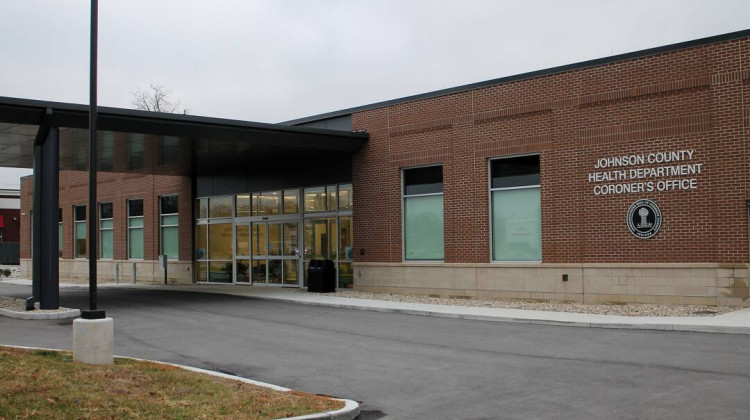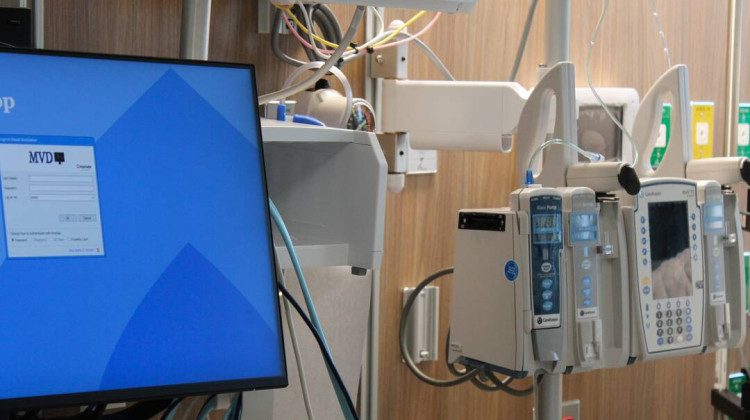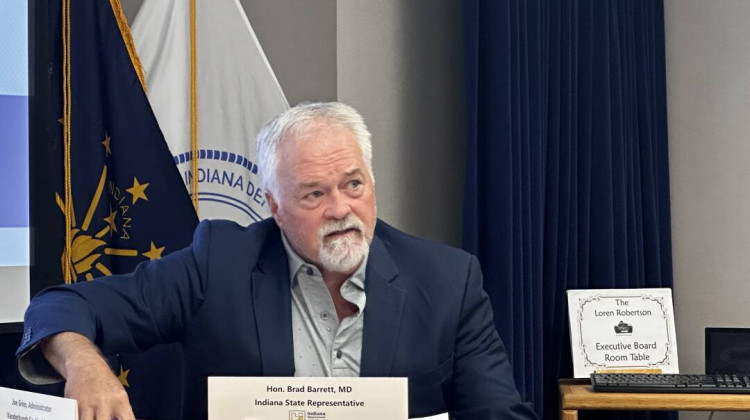
The Marion County Judge heard arguments stemming from a case brought by two Indiana OBGYNs to block the state Department of Health from releasing abortion records.
Eric Weddle / WFYIA Marion County judge will soon decide if the Indiana Department of Health can release terminated pregnancy reports following a hearing Tuesday afternoon.
Indiana-based obstetrics and gynecology physicians Caitlin Bernard and Caroline Rouse filed a motion for a temporary restraining order in an attempt to bar the state from releasing records about abortions provided in the state.
In a court filing they said the doctors and their patients will suffer irreparable harm if the Indiana Department of Health discloses abortion records to the defendants or any other member of the public.
In addition to information about the abortion procedure itself, the reports ask providers to collect the patient's demographic information and medical history.
Katherine Jack, the attorney for the plaintiffs, argued during the hearing that the judge should grant a temporary restraining order barring the state from releasing the records because if they do, the decision can’t be taken back.
“The bell cannot be unrung,” Jack said.
The hearing marks the latest development in ongoing legal battles over the confidentiality of abortion reporting in Indiana.
Both attorneys for the plaintiffs and the defendants declined to comment to WFYI after the hearing.
Marion County Superior Court Judge James Joven gave the plaintiff’s attorney until the end of the day to file a brief responding to the defendant’s arguments in order to make his decision.
Abortion rights advocates and anti-abortion officials have clashed over the issue, with opponents of the release arguing that even limited data could be used to identify patients — especially in smaller communities across the state.
Indiana is under a near-total abortion ban after the state Supreme Court ruled in 2023 that the ban does not violate the state’s Constitution.
Just 45 legal abortions took place in Indiana in the first quarter of 2024, a drop of from an average of 2,130 abortion during the same time period between 2020 and 2023, according to a May 2024 report from ISDH.
Following the near total ban, ISDH stopped publicly releasing abortion reports that included provider and patient demographic information.
In a 2023 decision, the state’s Public Access Counselor Luke Britt decided that releasing the data could be used to identify patients who received abortions, violating the Access to Public Records Act, which prohibits releasing patient medical records.
During Tuesday’s hearing, attorneys for the state and the anti-abortion group Voices for Life argued that the restraining order –– which would block ISDH from releasing the abortion reports –– shouldn’t be approved because no real harm would fall on physicians, and that the anonymized reports would not breach patient privacy.
But Jack, the attorney representing abortion providers, pushed back. She said releasing these records would break the trust between doctors and their patients — potentially discouraging patients from being honest about their medical care.
A point of contention throughout the hearing was whether the terminated pregnancy reports are medical records, which agencies cannot release because of an exemption in the state’s public records law. But the attorneys for the defendants argued the reports are not medical records because some identifying information, like names, would be redacted.
“There should be one understanding of a medical record,” Jack argued.
Indiana’s Attorney General Todd Rokita has advocated for the release of the abortion reports, arguing that because records stopped being released, “Indiana’s pro-life laws became unenforceable.” He said the reports include some information that his office would need to hold providers accountable if they break the law.
But Public Access Counselor Britt wrote in his 2023 opinion that “given that the report is populated with information that could be reverse engineered to identify patients — especially in smaller communities — you argue that the required quarterly reports should suffice in terms of satisfying any disclosure and transparency considerations.”
The attorney for the Indiana State Health Commissioner said the state won’t release the abortion reports before Feb. 18. By then, the judge is expected to have made a decision.
Farrah Anderson is an investigative health reporter at WFYI and Side Effects Public Media. Contact her at fanderson@wfyi.org. Follow her on X @farrahsoa.
 DONATE
DONATE






 Support WFYI. We can't do it without you.
Support WFYI. We can't do it without you.